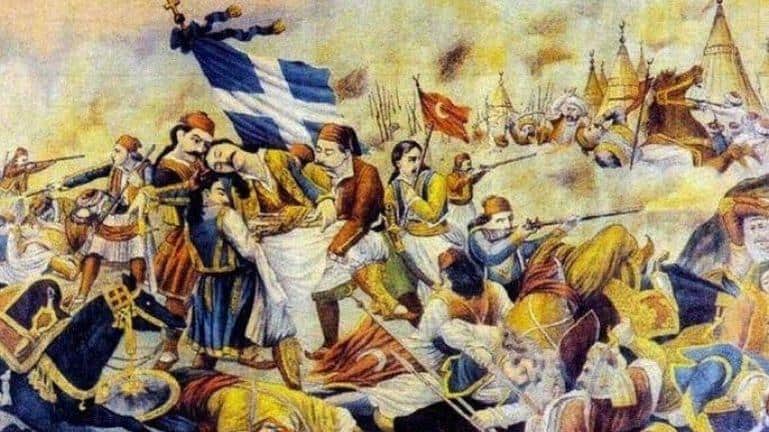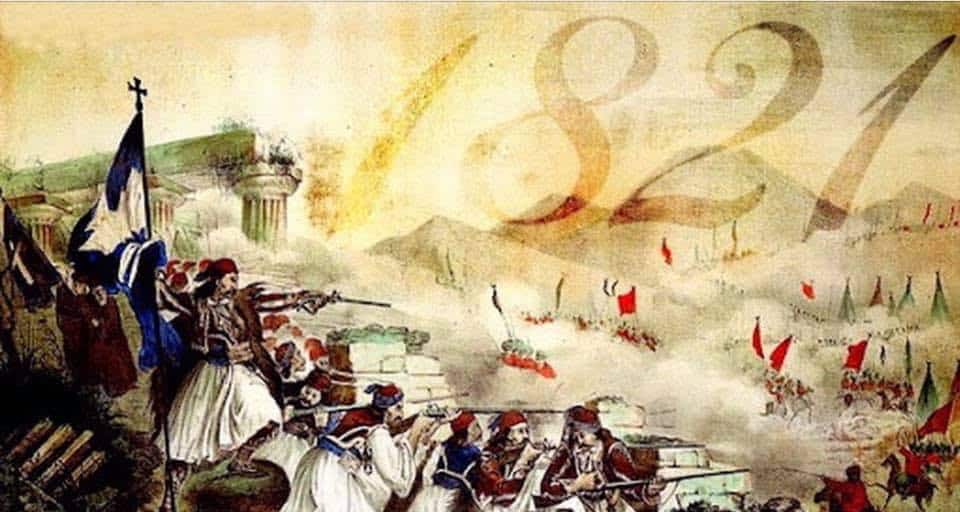
Greek citizens' perception and knowledge about the Revolution of 1821 are reflected in a survey by polling company MARC, on behalf the Center for Liberal Studies-Markos Dragoumis (KEFiM).
The survey found that the overwhelming majority of Greeks believe the 1821 War of Independence against the Ottoman Empire (Revolution of 1821) was national in nature, while Theodoros Kolokotronis, the most prominent general in the uprising, was the central hero of the struggle.
The results were presented by KEFiM on Wednesday under the title “How do Greeks see the Revolution of 1821?”
On the question- what kind of Revolution the 1821 Independence War was, 90.4% of the respondents answered that the uprising of 1821 was of a national nature. For 54.6% the Revolution was social, 52.9% said it was liberal in nature- a close percentage (51.3%) said it was religious, while those who associated it with a a “democratic” uprising were 40.8% of respondents.
Another question “Can you remember the names of the most important figures of the Revolution of 1821?”, highlighted the following 5 heroes: Kolokotronis (92.7%), Karaiskakis (63.1%), Bouboulina (32.4%), Papaflessas (32.2%), Athanasios Diakos (23.7%).
As for the contribution of the foreign powers of the day to the success of the Revolution, an issue that definitely demands deeper knowledge and insight into Greek history, the prevalent answer was that Russia (42.5%) helped the most, followed by France with 18.3%, Great Britain with 17.1% and Austria with 6.2%, a response that could be dubbed somewhat problematic.
As far as the social groups or institutions which played a pivotal role in the outbreak of the Revolution of 1821, the Friendly Society (Filiki Eteria) was the most prominent with 94.2%, followed by the Philhellenes (87.1%), the Greek island shipowners (85 , 2%), the military, ie the former mountain and highway bandits (Armatoloi and Kleftes) with 81.2%, the church (72.1%) and finally the Phanariot scholars with 68.6%.
According to the questionnaire, 89.3% learnt what they know about the Greek War of Independence from school, 17.2% from university and 70.6% from reading books.
"The image that Greek men and women have of the Revolution is quite schematic, one-dimensional, quite outdated, as it does not seem to have been particularly informed by recent historical research. But, on the other hand, the Revolution emerges as a strong unifying element for Greek society, an integral and sacred part of its identity. That is why the Greeks react with disbelief and even anger to anything that shakes or informs the dominant national narrative," said Aristides N. Hatzis, a professor of law, philosophy and economics at the University of Athens.
On his part, the president of KEFiM Alexandros Skouras, stated that "the purpose of the research as well as all the activities of KEFiM regarding the 200 years of the Greek Revolution is certainly not to rewrite the history of 1821, but to understanding the knowledge of the people, the ideas and the historical circumstances that contributed to it."

